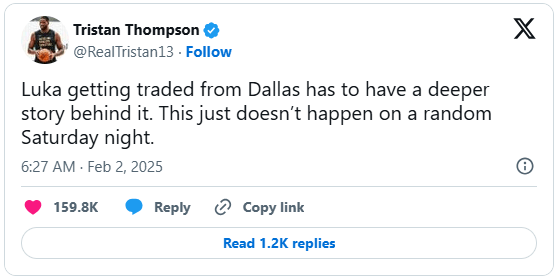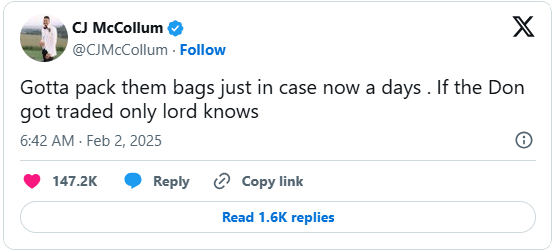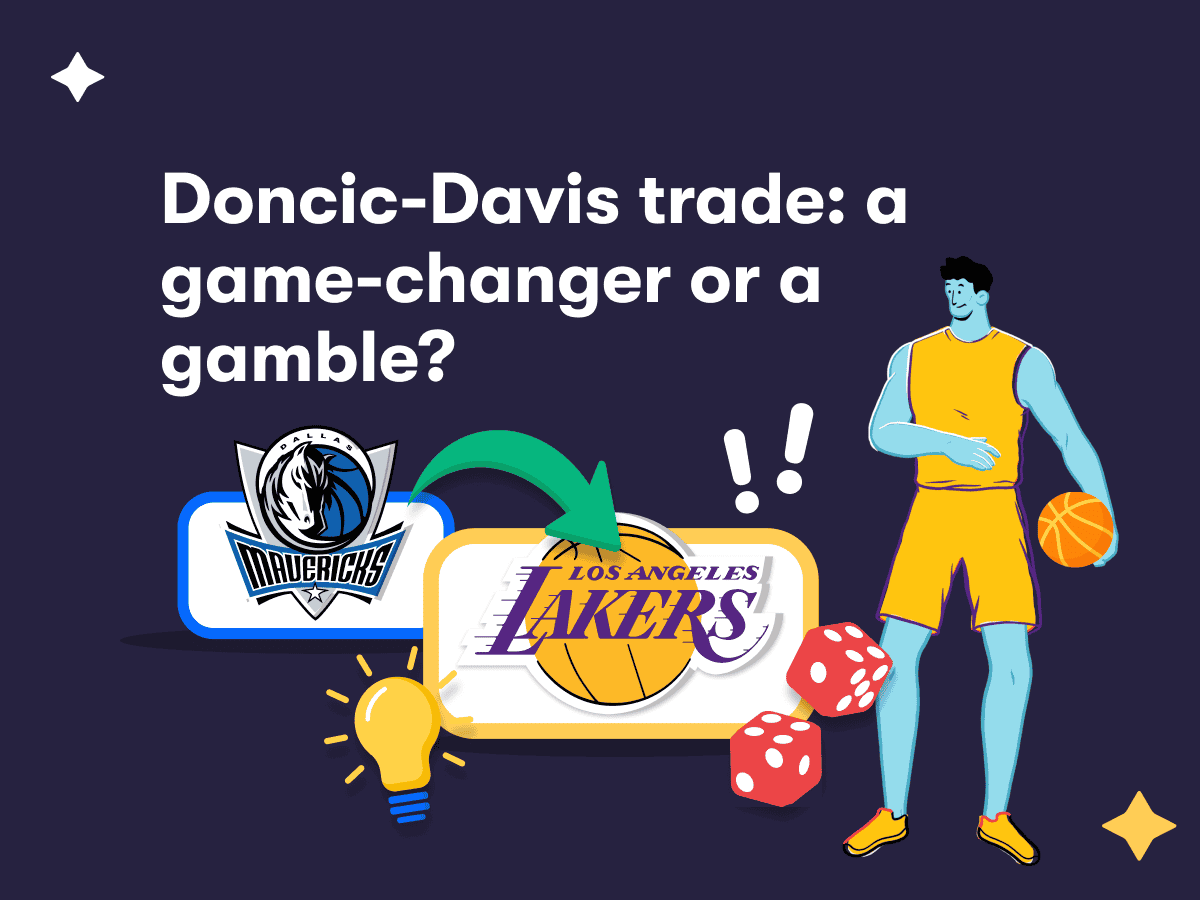Luka Doncic in Lakers purple and gold. Anthony Davis rocking Mavs blue. If you had this on your off-season bingo card, congratulations — you might be the only one.
The NBA world was rocked by what is arguably the most shocking trade in modern history. A franchise cornerstone swap. A move that shifts the league’s power balance overnight.
And yet, as fans and analysts debate the logic behind the deal, one can’t help but wonder if the league’s shifting financial landscape — and deepening ties with the gambling industry — have played a role in orchestrating the mega-trade.

Basketball logic or a strategic disruption?
On paper, this trade is a head-scratcher.
- Dallas trades away Luka Doncic — arguably the best young superstar in the game.
- The Lakers part ways with Anthony Davis — one of the league’s most dominant two-way bigs.
Sure, there’s a basketball argument for both sides. The Mavericks get a defensive anchor and a fresh start, while the Lakers land a generational offensive talent to pair with LeBron. But does this really feel like a move driven solely by team needs?
If this was just about roster balance, wouldn’t Dallas have demanded more for Doncic? The Mavs just traded a top-three NBA asset without even shopping him around. If a perennial MVP candidate hitting his prime isn’t worth it, then who is?
And why would L.A. part ways with Davis when their championship window is still (barely) open? If the AD-LeBron pairing wasn’t working out, why go for another oversized on-ball addition to the roster?

The context
Past NBA trades always had context — a strategic imbalance, player exiting prime, or a star bound to leave by choice. This trade had little of that.
Even blockbuster deals like Shaq’s move to Miami or Harden’s trade to Brooklyn had clearer motives — cap space, draft picks, locker room issues. This deal? It breaks the mold entirely.
A lot of the media’s emphasis is on Doncic’s subpar conditioning, and Dallas were clearly unhappy with it. But are a few extra pounds worth coughing up a star? Understandably, L.A. snatched up prime Luka without much hesitation.
The timing, the risk, the sheer seismic scale of the trade — it all feels oddly disruptive. Which brings us to the big-money industry that thrives on chaos: sports betting.
The NBA’s billion-dollar gamble
Let’s be clear: there’s no evidence that this trade was directly influenced by the gambling industry. But the NBA’s relationship with betting has never been deeper.
The league has partnered with major sportsbooks (like FanDuel and DraftKings), integrated real-time odds into broadcasts, and seen a surge in gambling-related revenue streams. Every shake-up — especially one of this magnitude — creates new betting markets, increased engagement, and millions in potential wagers.
Consider what happens when a trade of this scale drops:
- Futures odds go haywire. Before the trade, the Lakers were nowhere near championship favourites. Now? They’re an instant contender. The Mavericks, meanwhile, see a dramatic shift downward in their expected performance.
- Betting volume spikes. Every sportsbook scrambles to adjust their lines, and bettors rush to capitalize before odds settle.
- Engagement skyrockets. More drama means more bets, more viewership, and more revenue — not just for the league, but for the sportsbooks operating alongside it.
Now, does this mean the NBA orchestrated the trade for betting reasons? Not necessarily. But it would be naive to think that the league isn’t aware of the financial upside of such a bombshell trade.
Reading between the betting lines
There are a few signs worth noting:

Odds movement before and after the trade
Did certain markets shift suspiciously before the deal became public? A similar scenario unfolded when Kevin Durant joined the Warriors — his move immediately slashed Golden State’s title odds from +300 to -110, causing an overnight betting frenzy.

Strategic unpredictability and the league's business side
The NBA thrives on storylines and is increasingly more intertwined with gambling. The more shocking the league is, the more attention it gets. And attention means money. More viewership, more engagement, more bets — everyone in the ecosystem benefits.

Vested interest
Mark Cuban, former Mavs majority owner, sold the majority stake to Miriam Adelson. Who might that be, you say? Only the fifth richest woman in the US, owner of Las Vegas Sands, and part of an entire family of moguls actively advocating for the advancement of legal online sports betting in Texas.

Player strengths
Luka ranks in the 99th percentile in usage rate and thrives in a heliocentric offence, whereas Davis, despite his defensive prowess, has struggled to stay healthy. Does this move truly maximize either team’s strengths? What would two offence players on the Lakers hardwood look like? Something’s got to give.
None of this is proof of anything underhanded. But it does raise an interesting question: would a trade like this have happened in a pre-sports betting era?
Probably not. The Adelson plan for Dallas includes the development of a new arena for the Mavericks, envisioned as part of a larger entertainment complex featuring a casino resort. This hints at broader ambitions beyond basketball, and certainly beyond that $345-million supermax price tag.
Some speculate that the Doncic-Davis trade was a strategic effort by the new ownership to influence Texas lawmakers by highlighting the potential for relocation if gambling legislation doesn’t advance.
At the end of the day, maybe this was just a bold basketball decision — one that will be debated for years. But with sports gambling now a central pillar of the NBA’s business model, it’s impossible to ignore how much the league benefits from high-stakes unpredictability.
So, was this trade just another example of NBA evolution? Or is there an unseen influence at play — one that goes beyond the hardwood?
Either way, one thing’s for sure: this season just got a whole lot more interesting.











